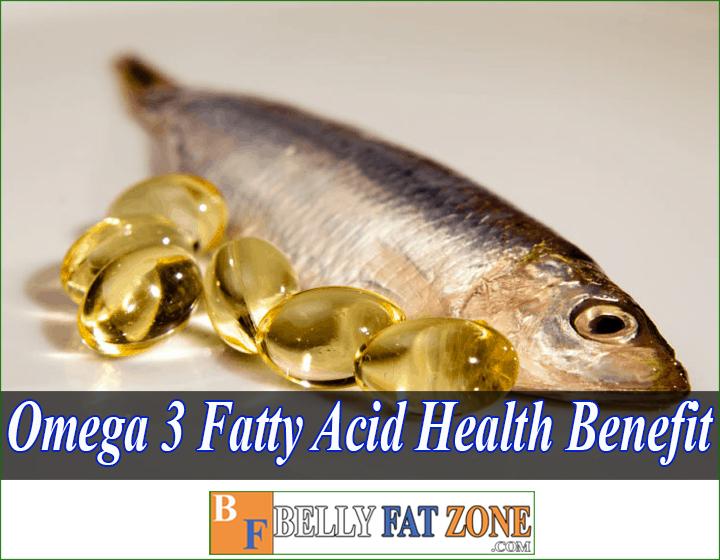Do many people say fish oil is good for overall health and especially brain health, whether this is true or not?
If Omega 3 is perfect for health, how to use it properly?
What are omega-3 fatty acids?
Omega-3s are unsaturated fatty acids that are essential for human health. Omega 3 fish oil supports heart and brain health.
Omega-3 cannot be produced in the body itself but must be absorbed by food: natural and supplemented.
Omega 3 can be broken down into 3 groups: Alpha-linolenic acid (ALA), Eicosapentaenoic Acid (EPA) and Docosahezaenoic Acid (DHA) .

The supplementary food industry in recent years has focused heavily on research on fish oil capsules.
This is because omega-3s are important for brain health, reducing belly fat, and fighting pain and arthritis. This explains why many people recommend buying fish oil products if they go for training.
At one time, many people doubted the importance of omega 3s. However, it was studies and experiments that proved the opposite.
It is the article on how to reduce belly fat that has partly proved its importance. And if you have practiced, you must supplement if you do not want to suffer from joint pain.
Omega-3 fatty acids are essential types of fat, which you should add to your diet. However, most people do not know what it is.
This article will explain everything you need to know about omega-3 fatty acids, including the different types, how they work, and the benefits of omega-3 fatty acids. Now BellyFatZone invites you to refer to this article together!
What are omega-3 fatty acids? Omega-3 benefits for health
Omega-3 is a chain of essential fatty acids for the body's activities and brings countless health benefits. Because our body cannot produce this omega-3 on its own, it must be consumed with your regular diet.
The 3 most important types of omega-3 fatty acids are,
- ALA (Alpha-linolenic acid)
- DHA (Docosahezaenoic acid)
- EPA (Eicosapentaenoic acid)
ALA is found primarily in plant foods, while DHA and EPA are found primarily in animal and marine algae foods.
Some foods high in omega-3 are fatty fish, fish oil, flaxseed, chia seeds, flaxseed oil, and walnuts.
Those who cannot eat many of these foods choose omega-3 supplements, such as fish oil or seaweed oil.
Read more: Benefits of Fish Oil Capsules for Gym.
Three types of omega-3 fatty acids
Let's find out more studies around this type of fatty acid! EPA and DHA are the two most important fatty acid groups found in natural foods and supplements, while ALA is commonly found in nuts, seeds, and leafy greens.
Because EPA and DHA are mainly from meat and fish – 2 critical components of a daily diet of exercise, will analyze more than ALA.
Although the human body has a mechanism of metabolizing EPA and DHA from ALA, this process is often minimal. Therefore, you need to constantly add meat, fish, and fish oil to promote fish oil's full power for health.
There are 3 main types of omega-3 fatty acids – ALA, DHA, and EPA.
1. ALA
ALA is the most common omega-3 fatty acid in the diet. The human body uses ALA for its main energy production, but it can be converted into the biological forms of omega-3s, EPA, and DHA. ( 1 )
However, this metabolism is not enough for human needs. Only a small percentage of ALA can be converted into these two forms.
Foods high in ALA are flaxseed, linseed, canola, chia, walnut, hemp, and soybean seeds.
2. EPA
EPA is found primarily in animal foods, such as fatty fish and fish oil. However, some types of seaweed also contain EPA. It plays a role in many body functions. Part of the EPA can be converted into DHA.
3. DHA
DHA is the most important omega-3 fatty acid in the body. It is the main structural component of the brain, retina, and many other body components.
Like EPA, it is commonly found in animal foods, such as fatty fish and fish oil. Meat, eggs, and grass-fed dairy products also contain fairly large amounts of EPA.
Vegetarians often lack DHA and take additional seaweed pills to make sure they get enough of this omega-3 daily.
Omega-6: omega-3 ratio
Omega-6 fatty acids also play an important role in the human body, similar to what can be obtained from omega-3.

Both are used to produce signaling molecules, called eicosanoids, that have different roles in inflammation and blood clotting.
However, omega-3 helps fight inflammation and brings a lot of health benefits. In Western diets, the diet is usually richer in omega-6 than omega-3s.
Therefore, this ratio tends to deviate completely to omega-6.
Maintaining a balance between these two fats – often taken with the omega-6: omega-3 ratio – is crucial for optimal health.
Although there is not enough evidence to prove that omega-6 is harmful to health, most health experts agree that consuming adequate amounts of omega-3s per day is important for health.
Read more: Omega 3 – Omega 6 Rich Foods List Helps You to Replenish Good Fats.
How do omega-3 fatty acids work?
Omega-3 fatty acids, especially DHA, are essential for brain and retinal function. It is essential for pregnant and breastfeeding women because DHA can affect their babies' health and intelligence.
Besides, getting enough omega-3s also has loads of great health benefits for adults. This is especially true of long-chain acids like EPA and DHA.
Although the evidence is mixed, many scientific studies have shown that omega-3 fatty acids may help fight certain diseases, such as breast cancer, stress, physiological disorders, and many Other inflammatory diseases.
If you don't eat fish or other sources of omega-3 foods, consider taking supplements, as they are very cheap and effective.
What omega-3 fatty acids do is scientifically proven.
Omega-3 fatty acids are essential.
They have many benefits for the body and brain. Here are the benefits of omega-3s: you need to read carefully to know why you should supplement each day.
1. Omega-3 can fight depression and anxiety
Stress and depression are some of the most common psychological disorders in the world. Symptoms are often sad, apathetic, and no longer happy.
Anxiety is also a common disorder, often occurring when there are frequent symptoms of anxiety and stress.
Fortunately, studies have shown that people who regularly take omega-3 supplements reduce their risk of depression and anxiety.
Besides, those suffering from anxiety or anxiety and start taking omega-3 pills will surely improve their symptoms significantly.
There are 3 types of omega-3 fatty acids: ALA, EPA, and DHA. Of these 3 types, EPA often has the best ability to fight depression.
2. Omega-3 may help improve vision health
DHA is a major component of the retinal eye structure.
Without adequate absorption of DHA, it is likely to cause any visual problems.
Fortunately, getting enough omega-3s can reduce the risk of macular degeneration, one of the world's leading causes of permanent eye damage and permanent blindness.
Read more: Omega 3 Weight Loss Review – Is It Really Like a Dream?
3. Omega-3 can improve brain health during pregnancy and babies
Omega-3s are essential for brain development and infant development. DHA accounts for 40% of the polyunsaturated fatty acid content in the brain and 60% in the retinal structure.

Therefore, it is not surprising that infants fed with DHA supplements often have better eyesight than those who are not fed this formula.
Getting enough omega-3s during pregnancy often brings many benefits to your baby, including:
- Smarter
- Better communication and social skills
- The problem behaves less.
- Reduces the risk of developmental delays
- Reduce the risk of autism
4. Omega-3 may reduce the risk of cardiovascular diseases
Heart attacks and strokes are the leading causes of death in the world.
Researchers have found that people who eat fish regularly are less likely to suffer from these diseases decades ago. Later, it was discovered that it was due to the absorption of omega-3.
Since then, omega-3 fatty acids have often been associated with a myriad of health benefits. Include:
- Triglycerides: Omega-3 can reduce triglycerides content, about 15-30%.
- Blood pressure: Omega-3 can lower blood pressure in people with high blood pressure.
- Good HDL cholesterol: Omega-3s can increase good cholesterol.
- Coagulation: Omega-3 can help blood molecules go together. This helps prevent blood thinning.
- Plaque: Omega-3 helps prevent plaque from limiting or obstructing blood flow in arteries.
- Inflammation: Omega-3 can reduce the production of toxic substances that normally occur when the body is inflamed.
For some people, omega-3 also helps lower bad LDL cholesterol. However, the evidence is still confusing. Therefore, more research is needed to prove this.
Despite the positive effects on heart health, there is no conclusive evidence that omega-3 supplements can help fight heart attacks or strokes.
5. Omega-3 can reduce hyperactivity disorder symptoms in children
Hyperactivity disorder (ADHD) is a disorder of concentration and hyperactivity. A few studies have found that children with ADHD often have lower omega-3 fatty acids than healthy children.
Besides, many studies have found omega-3 supplements to reduce ADHD symptoms.
The benefits of omega 3 fatty acids lie in their ability to improve their inability to concentrate and get things done.
Recently, researchers have discovered that fish oil supplements are one of the most promising ADHD treatment solutions.
6. Omega-3 may reduce the symptoms of metabolic syndrome
Metabolic syndrome is a series of problems. It often causes abdominal obesity, high blood pressure, insulin resistance, high triglycerides, and low good cholesterol.
This is a common problem because it increases the risk of diseases, including cardiovascular disease and obesity.
Omega-3 fatty acids may help improve insulin resistance, inflammation, and heart disease in people with metabolic syndrome.
7. Omega-3 can fight inflammation
Inflammation is a natural reaction to injections and damage to the body. Therefore, it is essential for good health.

However, sometimes inflammation lasts for a long time, even without any wounds. This is called chronic inflammation.
This chronic inflammation is also a minor reason for cardiovascular disease and chronic cancer. Fortunately, omega-3 fatty acids can help reduce the production of active substances and molecules associated with inflammation …
8. Omega-3 helps fight autoimmune diseases
In autoimmune diseases, the body's immune system often confuses healthy cells as foreign cells and begins to attack them.
Type 1 obesity is a prime example in which your immune system attacks insulin-producing cells inside the spleen. Omega-3s can protect against some of these diseases and are especially important for babies.
9. Omega-3 may improve mental disorders
Low levels of omega-3 in the body can cause mental disorders in many people.
Many scientific researchers have recommended omega-3 supplements that can reduce the frequency of psychological disorders. Supplementing with omega-3 fatty acids may reduce the feeling of temper.
10. Help support triglycerides to stay healthy
First, what are triglycerides? Triglycerides are a form of fat that provides energy for metabolism inside the body.
It is commonly found in vegetable oils and animal fats. However, if the Triglyceride index rises, it will cause some dangerous diseases such as stroke, heart attack …
Diet and exercise habits greatly affect triglyceride levels.
For some people, due to the inherited genes, this fat content is always much higher than that of the normal person, even if that person has been eating, practicing science.
However, to solve this problem, increase the amount of omega 3s a day. Omega 3 will help rebalance Triglycerides.
As mentioned above, when you see a high triglyceride level, it will alert you to early health status because, at this time, high levels of LDL cholesterol (bad cholesterol) – the cause of heart disease.
Therefore, we recommend that you eat at least once a week to balance glucose and cholesterol.
11. Omega-3 plays an important role for people who need to lose weight
The best way for you to stick to any weight loss diet is to make sure you're full, and omega-3s do that.

A study published in the journal Appetite demonstrated that one group of people experimented with a diet containing 1300mg of omega-3 fatty acids. Another group had a diet of only 260mg of omega-3.
After a period of 4 weeks, people who consumed more fatty acids said they were less hungry.
12. Help burn fat
One more important point that you need to pay close attention, absorbing a sufficient amount of omega 3s can help improve many health benefits from regular exercises.
According to a study published in the American Journal of Clinical Nutrition, experimental people were divided into four groups and received one of the following combinations:
- Use sunflower essential oil only – omega-6
- Sunflower essential oil and exercises
- Omega-3 only
- Omega-3 and exercise
The omega-3 group and exercises improved their blood cholesterol and fat loss significantly compared to the other 3 groups. It is this combination that will help you quickly get in shape.
13. Help the brain work better
Omega 3 fatty acids play an important role in brain function. A study published in the European Journal of Clinical Investigation provided experimental people with two options, one for 4 grams of omega 3 and two for daily intake of olive oil.
After that, they will do some cognitive and brain tests … After 5 weeks, omega-3 users feel awake. In short, eating enough omega-3 fats will make you healthier!
14. Good for the skin
DHA is a structural component of the skin, responsible for cell membranes' health, making up the majority of your skin. Healthy cell membranes make skin smooth, wrinkle-free.
EPA also has countless benefits for your skin, including:
- Control the rate of lubricant production and keep the skin moisturized.
- Preventing keratinization in hair follicles and hair.
- Reduce premature skin aging.
- Reduce the risk of acne.
Besides, omega-3 helps protect your skin from the effects of the sun. EPA helps block (block) the release of your skin's corrosive collagen compounds after sun exposure.
Instructions for selecting and absorbing omega-3 oral tablets
Although you can get EPA and DHA from natural fat-rich food sources, supplement products are usually the best simply because the substance has been thoroughly refined.
EPA and DHA are abundant in fish oil supplements. That's all the important information you need to know about omega-3 is nothing and the effect of omega-3 on health.
Omega-3 Fatty Acid Benefits Video:

That's all you need to know about what omega-3 fatty acids are and the benefits of omega 3s to human health.
This is an essential fatty acid for the body and needs to be supplemented daily through eating or drinking.
View more:
- Omega 3 – Omega 6 Rich Foods List Helps You to Replenish Good Fats
- Creatine Bodybuilding Benefits – You Should Know for Better Effect
- Walk After Meal Benefits – You’ll Don’t Want to Spend Time Watching TV Any More
Hopefully, the information above has helped you gain some more knowledge about “omega 3 fatty acid health benefit” and bring some small value. Please share this article if you feel it is useful. Thanks!
Ref:
- https://www.ncbi.nlm.nih.gov/pmc/articles/PMC3675900/
- https://www.ncbi.nlm.nih.gov/pmc/articles/PMC2621042/
- https://www.ncbi.nlm.nih.gov/pubmed/21784145
- https://www.ncbi.nlm.nih.gov/pubmed/24150114
- https://www.ncbi.nlm.nih.gov/pmc/articles/PMC3712371/
- https://www.ncbi.nlm.nih.gov/pubmed/24934907
Best Selling Omega 3 Nutritional Supplements:
Wish you find your favorite product!






